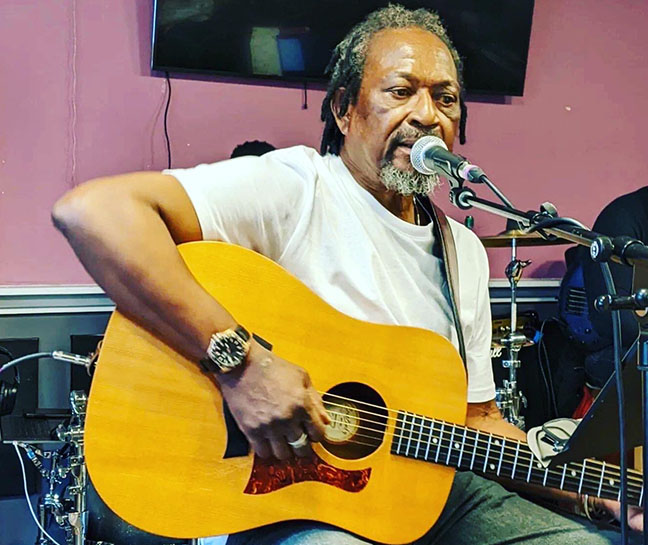The music of Ben Okafor moves effortlessly between the best of African Reggae, with its rich lyrical heritage, classic folk protest songs in the vein of Bob Marley’s Redemption Song, and driving reggae beats betraying the early influence of Peter Tosh, the Wailers, and Marley himself.
Ben was born in Enugu, eastern Nigeria. His music and early life were shaped by the traumatic experience of being caught up in a civil war in Nigeria (which we refer to as the Biafra War) and, at the age of 13, fighting as a boy soldier. The pain and destruction he witnessed during that period soon began to influence the lyrics he wrote, his songs reflecting a heart-felt plea for justice, truth and love.
Ben’s earliest memories of music go back to live street performances of West African Hi-Life, street dancers and percussion bands in the market squares of eastern Nigeria. Ibo and European church music, alongside his mother’s enthusiasm for Miriam Makeba, combine with the later influences of James Brown, Jimmy Cliff, The Beatles and Rolling Stones, Fela Kuti and – inevitably – The Wailers.
Ben moved to the UK in 1979 and settled in the Midlands, quickly releasing two albums, both produced by Bob Lamb of early UB40 fame – and winning the ‘Outstanding British Reggae Artist Award’ shortly after.
Ben’s commitment to social justice led to collaborations with Amnesty International, the Anti-Apartheid Movement, and The Coalition to Stop the Use of Child Soldiers’ Ben also campaigned and toured as part of War Child and Make Poverty History, always using the global language of music as his main tool.
In 2006 Ben wrote the title track Bemamou (Enfants Soldats) for the album ‘No Child Soldiers’ featuring African Artists including Alpha Blondy, Angelique Kidjo, Youssou N’Dour and Salif Keita.
Ben’s third album, Coffee with Lazarus, saw reggae music moving beyond the boxes it’s so often consigned to, with some African Folk, ska and a little jazz thrown into the equation. Ben sings with passion on this deeply personal and conscious album, drawing on political issues to songs more closely to his heart. Recorded in Woodstock, New York, and produced by Harvey Jones (whose work includes Donna Lewis) this introduces a definite transatlantic feel into his strong base of African reggae.


